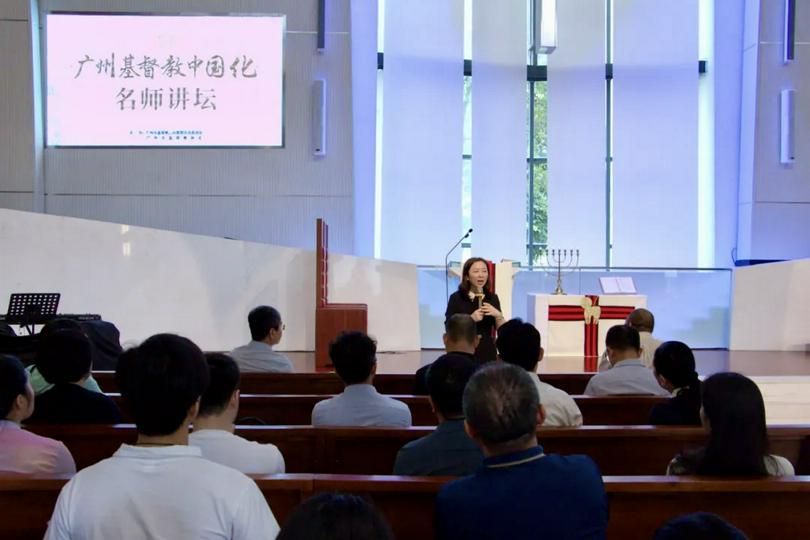On April 22, 2025, the second lecture of the 2025 Guangzhou Master's Lectures on the sinicization of Christianity was held under the theme "AI Technology Empowering Church Ministries: Opportunities, Challenges, and Practices," delivered by Professor Wu Qing, vice dean of the School of Liberal Arts at Jinan University.
The lecture took place at the Guangzhou Tianhe Christian Church and was attended by nearly 70 pastors and co-workers from Guangzhou CC&TSPM. The event was chaired by Rev. Guo Yun, chairperson of the Guangzhou TSPM.
Professor Wu began by outlining six key competencies that should be cultivated in the era of artificial intelligence (AI): aesthetics, integration, empathy, storytelling, playfulness, and meaning-making. Wu also emphasized the importance of enhancing mathematical literacy, such as computational thinking and human-machine collaborative thinking, to ultimately develop the ability to synergize and connect with AI.
Next, Professor Wu compared traditional search engines with AI large language models, highlighting the advantages of AI. In addition to traditional search engine functions, primarily answering factual questions, AI can perform complex tasks such as text creation, interactive dialogue, and knowledge reasoning, providing users with more personalized and intelligent services.
She then briefly introduced the various applications of currently prevalent AI large language models, particularly emphasizing the significance of AI for humanities and social sciences research. Professor Wu pointed out that by deepening interactions with AI, it becomes possible for AI to absorb and analyze vast academic resources, generate new research materials, and even construct interdisciplinary knowledge models. This can reshape research boundaries, broaden the scope of academic inquiry, and drive the transformation from traditional humanities to digital humanities. Drawing from her own practice, she shared techniques such as optimizing prompts and specifying questions to enhance AI application skills.
Subsequently, Wu proposed that, beyond directly using existing AI large language models, individuals can also create their own personalized AI agents. She demonstrated the methods and effects of such customization through case studies. These agents are entities capable of perceiving their environment, reasoning, learning, and taking actions to achieve specific goals.
Finally, Professor Wu elaborated on the practical application of AI technology in pastoral ministry. On one hand, leveraging AI's powerful data processing and analytical capabilities can aid in better understanding Christian classics and exploring theological ideas, thereby systematically constructing and deepening theological concepts, faith, and values. On the other hand, utilizing AI-generated images, videos, and other diversified forms of expression can enrich faith communication and continuously explore new practical pathways. At the same time, the speaker stressed the importance of adhering to ethical norms when using AI technology. She urged maintaining a clear mind and independent thinking, applying keen insight and precise judgment to evaluate AI-generated information, embracing the essence and discarding the dross, so that AI can truly become a catalyst for the development of church ministries.
- Translated by Oliver Zuo












